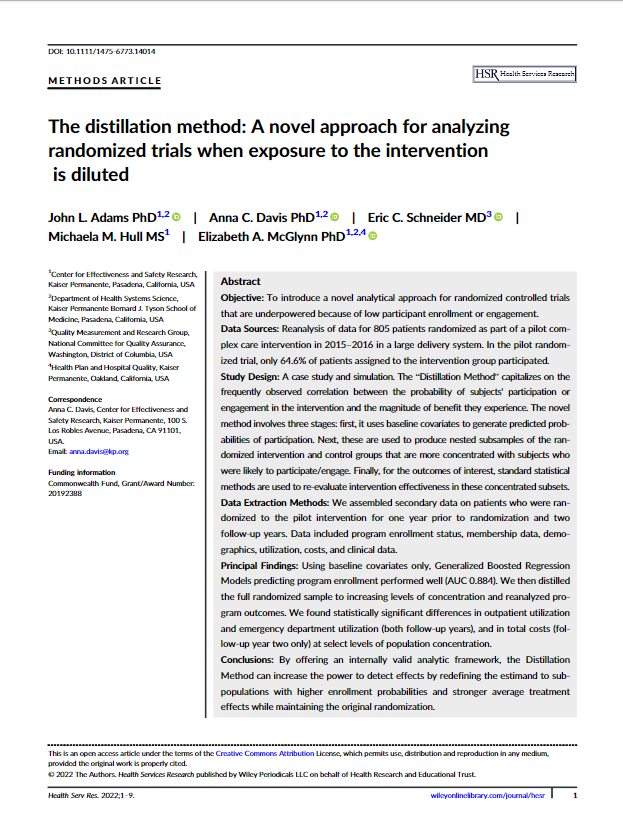Headline
Analytical approach for randomized controlled trials may be valuable for understanding the impact of complex care interventions and the subpopulations that may benefit from them.
Context
Many randomized controlled trials to evaluate the effectiveness of interventions for people with complex needs are underpowered when the trials are completed due to insufficient engagement of the study population with the intervention. In this scenario, the effect of the intervention is diluted, and some programs may be falsely deemed ineffective or may have been effective for a narrower population than the one originally selected. To address this challenge and avoid introducing new biases, this paper introduces a novel analytical approach called the Distillation Method, and provides a case study and simulation.
Findings
The Distillation Method focuses on those patients with a higher probability of engaging with the intervention while still accounting for their randomization status, and thus can increase the power of a study.
Takeaways
The Distillation Method may be valuable for analyzing randomized controlled trials of complex care and social care interventions, and may support health care stakeholders in identifying which subgroups can most benefit from an intervention. Application of this method may help generate new evidence on the effectiveness of complex care programs that aim to reach patients with low or variable engagement with health care organizations.

